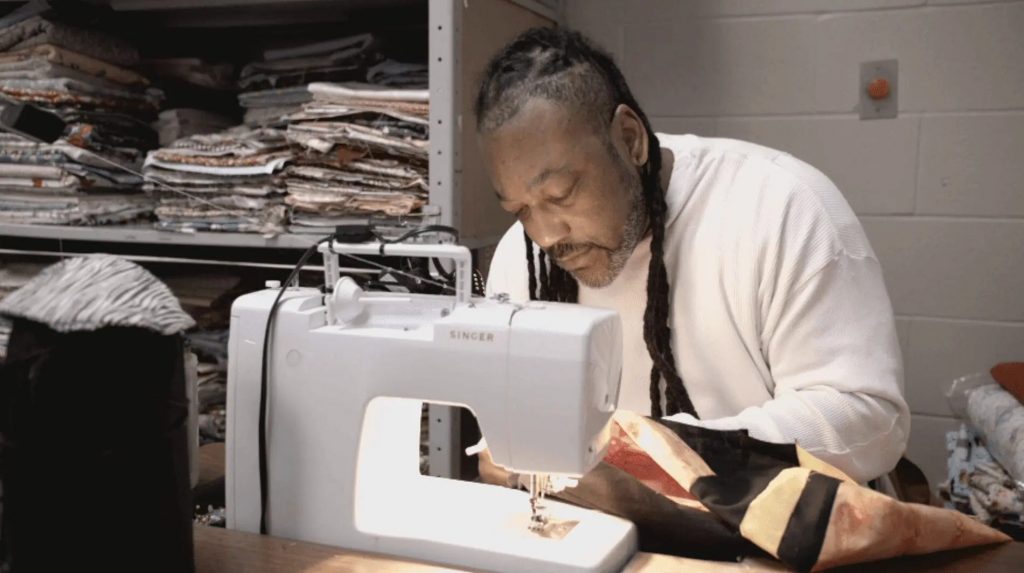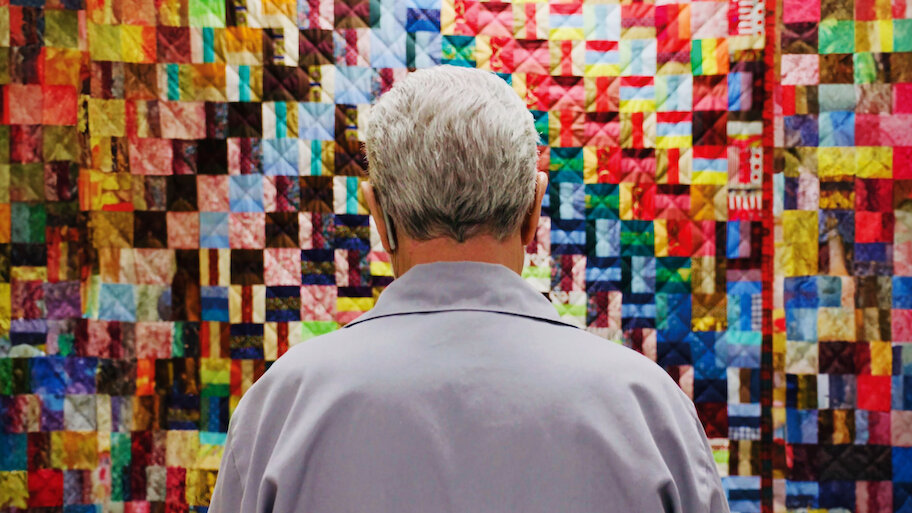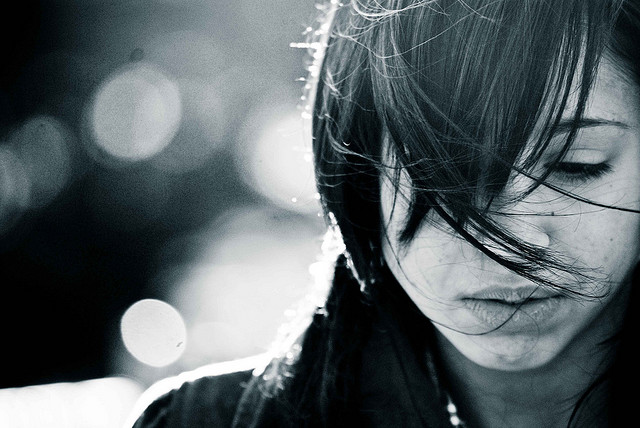What Happened When These Prisoners Picked Up Sewing Needles
It’s fair to say my wife and I have different tastes in television. When I’m settling down to watch Depeche Mode Live in Berlin, she’s flicking over to Rick Stein’s cooking show. When she wants the American crime drama, I want the moody European film with subtitles. Thankfully, there’s one genre we both enjoy—documentaries. And one recently moved us both.
The Quilters (Netflix) starts with a dreadlocked inmate named Chill, who’s walking us through his maximum-security prison. “This place is a jungle,” he says. “You’ve got to act tough, or the other guys will eat you alive.” But for Chill, it’s all a front—as we see when he leads us into a room that’s far removed from the steel bars and bolted-down tables we’ve just seen. Inside this room the tattooed tough guys are talking fabric patterns and stitching styles. . . because they’re part of the prison quilting group.
Hands That Harmed, Now Healing
Chill, Fred, Ricky, Jimmy—we discover each man is incarcerated for crimes so serious most of them will never leave. But now, remorseful and repentant, each is trying to give back. Every quilt they make will become a birthday present for a child in foster care. As they choose their fabrics and work their sewing machines, you see hands that once did evil now working to bring joy to the vulnerable.
At one point in the documentary, you see Jimmy praying in his cell with a Bible by his side. If there’s one thing I love about the Bible, it’s how practical it is. When it talks about turning from crime, it doesn’t just say what not to do, but what to do instead, like when the apostle Paul says, “Anyone who’s been stealing must instead do something useful with their hands, so they have something to share with those in need.” That’s just what we see happening in that sewing room.

Stitching Redemption
Two things bring joy to the quilters. The first is when a fabric delivery arrives. Jimmy picks out the star prints, Chill picks out the butterflies. With their intricate patterns taking up to 3000 pieces of material, this stuff is precious. The second is when a picture arrives of a foster child holding their quilt. That’s when the hands that once did wrong start wiping away tears.
It’s a lesson for me. Whether it’s apologising for an angry word or something worse, repentance isn’t just about what I stop doing but what I do instead. When hands that once formed a fist open to bless, healing can come to everyone.
Listen Now
First broadcast on BBC Radio 2’s Scott Mills Breakfast Show





Anne Booth
That’s lovely, and very thought provoking.
Sheridan Voysey
Isn’t it just? Thanks Anne.
Melanie Kettner-Borough
Such an encouraging read. X
Ps can you use a darker print in the website. On the phone it is quite light. Thanks
Sheridan Voysey
Good to know. Thanks Melanie.
Roger Paul
Thank you for that contribution Sheridan, it’s inspirational.
Only last week I sent a copy of your book ‘Reflect with Sheridan’ to a dear friend I’d not seen in years, and he is loving it… X
Sheridan Voysey
I’m so glad to hear he’s enjoying it! Thanks for the encouragement.